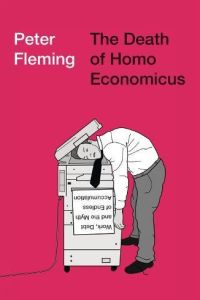Join getAbstract to access the summary!

Join getAbstract to access the summary!
Peter Fleming
The Death of Homo Economicus
Work, Debt and the Myth of Endless Accumulation
Pluto Press, 2017
What's inside?
Professor Peter Fleming offers a sharp and articulate critique of mainstream neoliberal economics.
Recommendation
Peter Fleming, professor and author of The Mythology of Work, offers a sharp, articulate and authoritative critique of neoliberal economics. His tone occasionally veers into that of an angry blogger – with a few surprising expletives to match. But Fleming’s insights and startling connections lift this potential polemic to a more worthy, enduring level. His take on the “human capital theory” is fresh and compelling, as are his perceptions about the growing trends of Uberization and “quit lit.” Cynical, angry, frustrated and armed with a ton of references, Fleming convincingly smites the orthodoxy. You’ll cheer the way he points out the problems with current economic theories and their – according to Fleming – destructive applications. Although those who disagree will gain considerable information, they are likely to decry a lack of comprehensive alternatives and solutions.
Summary
About the Author
Peter Fleming is a professor of business and society at Cass Business School at City, University London. He writes for The Guardian and is the author of The Mythology of Work.
















Comment on this summary